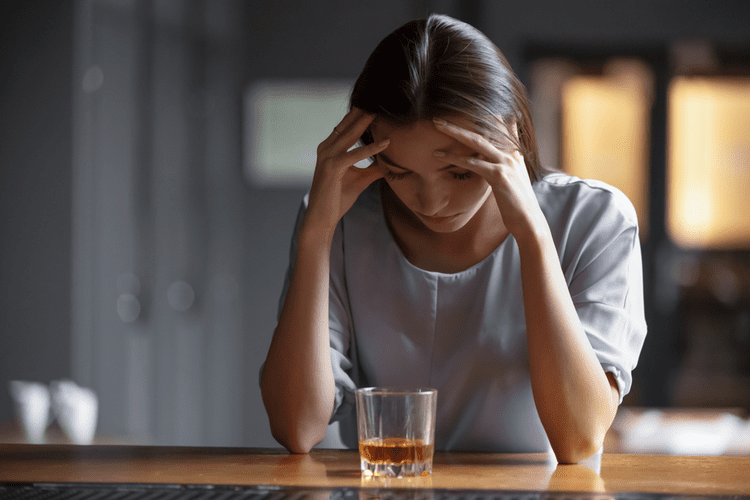It explains why it’s so difficult to simply quit using once a person is addicted to a drug. It is a complex process marked by a series of stages and behaviors that can have profound negative consequences on an individual’s life. The point at which a substance is being abused is defined based on the substance itself. For an illicit substance or a substance that has little to no legal or medical purpose such as heroin, it is considered substance abuse the first time someone uses it.
Aftercare and Support Systems
Your health care provider creates a record of the care and services you receive from us. Your health care provider needs this record to provide you with care and to comply with certain legal requirements. This Notice applies to all of the records of your care created and maintained by your health care provider who utilizes WoW’s service. Ultimately, with the help of a treatment program and qualified healthcare providers, you can get to amphetamine addiction treatment the next stage beyond the addiction cycle and break free of your drug dependence for good. The final stage of the addiction cycle is relapse, often occurring as the withdrawal symptoms become too overwhelming for the individual.
Habits for Proper Mental Health
The Company is committed to ensuring that your personal information shared over the Service is protected and kept confidential. By clicking “AGREE,” you consent to the use and disclosure of personally identifiable information as outlined in this Privacy Policy. Health Oversight Activities.Your healthcare providers may disclose medical information to a governmental or other oversight agency for activities authorized by law.
Addiction is recognized as a chronic disease that affects the brain’s reward circuitry, making it challenging to break free from addictive behaviors without professional intervention and addiction recovery support. Breaking the addiction cycle often requires comprehensive treatment that addresses the physical, psychological, and social aspects of addiction, helping individuals reclaim their lives and achieve sustained recovery. The cycle of addiction refers to the repetitive pattern of behavior that an individual with substance use disorder experiences. This cycle can seem unbreakable and often leads to a feeling of powerlessness.
Mental Health Resources
- The Company has the right (but not the obligation) to refuse to provide access to the Service to any person, agency or organization at any time, for any reason or for no reason at all, in our sole discretion.
- People may also be prescribed medication, such as opioids, by their doctor.
- Your healthcare providers may also combine medical information about many of its patients to decide what additional services it should offer, what services are not needed, and whether certain new treatments are effective.
- Your request must state a time period which may not be longer than six years.
- To request confidential communications, you must make your request in writing to the HIPAA Privacy Officer.
While you can break the cycle at this point by getting the right help, there is another stage that can send you right back to square one. In this exploration of the stages of an addiction cycle, we delve into the intricate dynamics at play, shedding light on the progression of behaviors, emotions, and physiological changes that underpin the continuum of addiction. During this stage, people rarely recognize the potential dangers ahead. We understand the challenges of this stage of life, and our program is specifically built to serve the mid-life adult in a meaningful and individualized way. In addition to managing a successful family medical practice, Dr. Hoffman is board certified in addiction medicine by the American Osteopathic Academy of Addiction Medicine (AOAAM).
Stage 2: Substance Abuse – Warning Signs Emerge

There are many types of addiction (alcohol, drugs, http://demo.anturio.com/blog/2021/06/29/here-s-what-happens-to-your-skin-when-you-drink/ sex, gambling, overeating, overspending, etc.) and each type follows a consistent cycle of phases that become increasingly difficult to overcome. Depending on the person and their particular addiction, each phase may take a short or long time to develop. However, even though each phase may differ in its duration, they generally progress in a repetitive pattern until some form of treatment takes place to intervene and alleviate the addiction. You agree not to access or use the Service in an unlawful way or for an unlawful or illegitimate purpose as determined by the Company or in any manner that contravenes this Agreement.
Start Your Journey to Recovery Today
This Notice will tell you about the ways in which your healthcare providers may use and disclose your medical information. This Notice will also describe your rights and certain obligations we have regarding the use and disclosure of your medical information. The Company reserves complete and sole discretion with respect to the operation of the Service. Subject to applicable law, the Company reserves the right to maintain, delete or destroy all communications and materials posted or uploaded to the Service pursuant to its internal record retention and/or destruction policies.

Reset Your Mind: Benefits of Inpatient Mental Health Care
- Your healthcare providers may also disclose information to doctors, nurses, technicians, and other personnel for review and learning purposes.
- This Notice will also describe your rights and certain obligations we have regarding the use and disclosure of your medical information.
- The facility, staff, & counselors made me feel like the most important person in the world.
- If you are experiencing 2-3 of these symptoms you might be suffering from a mild form of addiction.
It supports your recovery after you leave more intensive treatment, like residential rehab. Aftercare can include sober living, ongoing therapy sessions, and continued contact with staff from your treatment center. Many rehabs also have strong alumni communities with events, 12-Step groups, and more to keep patients connected and supported long after they leave treatment.
Mental Health and Loneliness
When a person tries to stop using the substance, withdrawal symptoms often follow. These symptoms vary depending on the drug but can include anxiety, irritability, nausea, depression, and physical pain. Withdrawal occurs because the brain, after becoming reliant on the drug for dopamine production, struggles to function normally without it. The cycle of addiction involves brain chemistry, tolerance, withdrawal, and the body’s changing response to substances choose the correct cycle of addiction over time. Any revised Notice will be effective for medical information that already exists as well as any information we receive in the future. Your health care provider will post a copy of any revised Notice on its website.
At the withdrawal stage of the cycle of addiction, a person can expect to face symptoms such as fatigue, anxiety, irritability, nausea, tremors, or even seizures in some cases. Ultimately, the withdrawal symptoms will vary depending on the particular drug of choice, the severity of the addiction, and the individual. At this stage of the cycle of addiction, the individual continues to use the substance for various reasons. They could be continuing to take a prescription drug for pain modification or they could be binge drinking in a social situation.

The information we provide is not intended to be a substitute for professional medical advice, diagnosis or treatment. It should not be used in place of the advice of your physician or other qualified healthcare provider. The first stage drug use is the stage in which the individual starts and continues to use the substance for various reasons. In the tolerance stage the brain has made significant changes in response to the substance and can no longer produce the same mental or physical effects.
Thankfully, treatment works at each stage, whether you’ve just started or have been in active addiction for years. It’s repetitive in nature since the act of taking addictive drugs releases dopamine, which reinforces the behavior—causing repetition. The cycle of someone who is addicted to drugs starts from trying drug use for the first time. Assuming that if you only try once, the dependency will not be excessive. Our goal is to provide education and insight on healthcare topics related to Substance Use Disorder.

